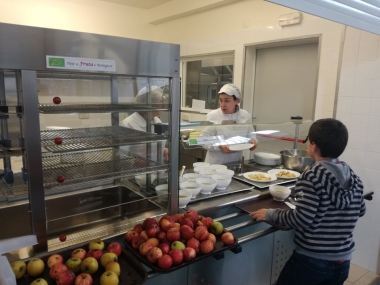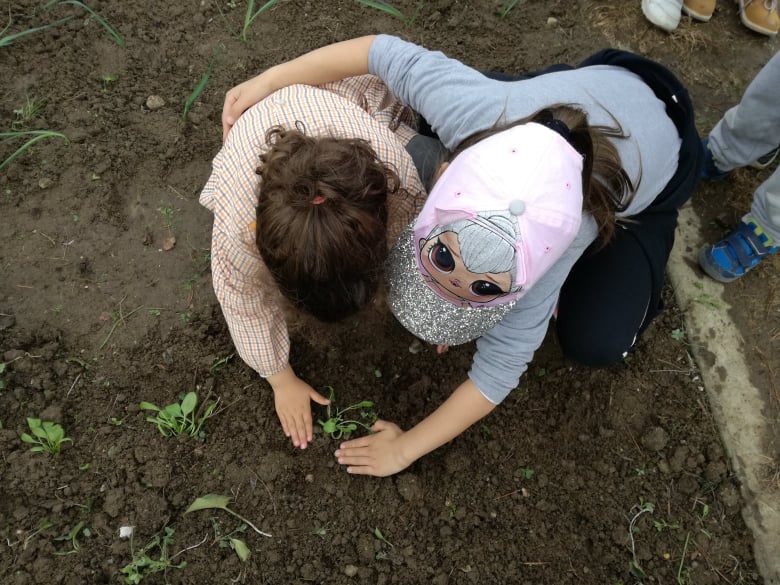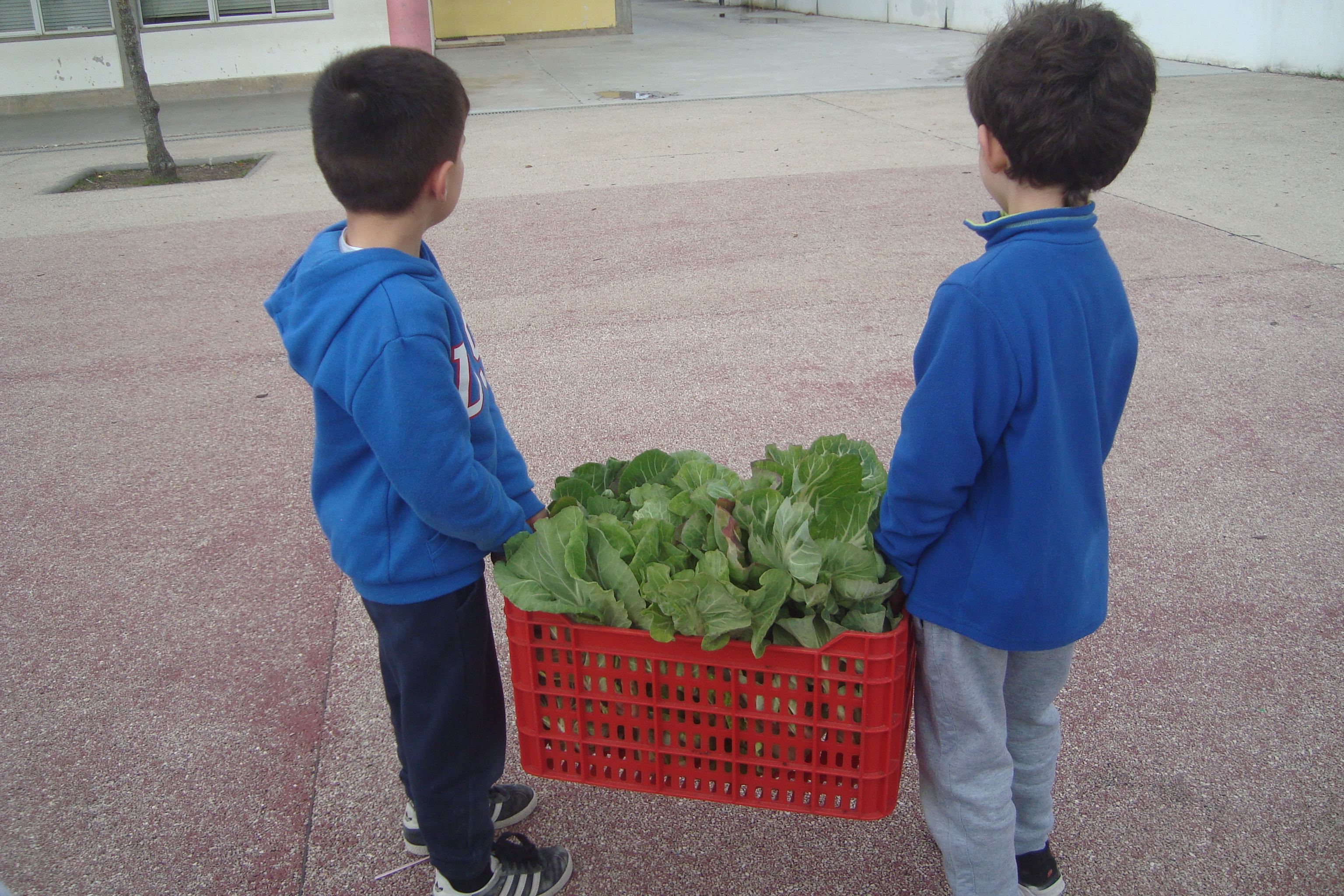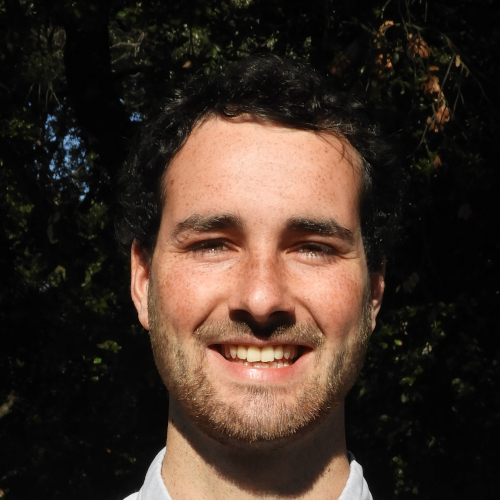A school canteen to change food behaviours
Edited on
16 April 2020There is a typical Portuguese phrase “É de pequenino que se torce o pepino”, which means something like “it’s since a young age that good behaviors can be learned”.
The school meals have a huge power to change behaviors on more healthy and sustainable food. By promoting good meals, we are giving to the new generations the knowledge for their future food choices. In parallel, we are also contributing to improve food knowledge in their families for the present time.

The Municipality of Torres Vedras has its own school food program (Sustainable Food School Program), characterized by a network strategy which delegates the competences to the 12 local county authorities, which, themselves contract local private social institutions for the management of the school meals. The menus are carefully prepared with the support of a nutritionist, respecting the nutritional balance, taking into account anthropometric values and favouring local seasonal foods, traditional dishes or the most appreciated in each location. Numbers talking, about 2700 meals/day are provided by these social institutions, while 1300 are provided from the two municipal central kitchens.
If, until now (2019-2020), the Municipality had the specific responsibility only of the kindergartens and primary schools, the next school year brings a whole new challenge with the assuming all the school levels’ meals, representing an enormous increase of the daily meals.
With BioCanteens, Torres Vedras has reinforced the existing good practices and introduced new ones: Vegetable school gardens; Healthy meals with fresh organic products; Food education actions; Weekly information of the school menus to families; Nutritional datasheets with the specific quantities to cook, according to the metabolic needs of the students avoiding, thus, food waste at the kitchen; Food waste separation and monitorization after meals - are some examples.

As exposed above, to integrate organic food in the huge number of meals/day is, by itself a big challenge, in a territory marked by conventional farming, resulting in a high lack of organic products.
Parallel projects can be analyzed to overpass this issue, besides the “Municipal Farm Platform” of BioCanteens. In Torres Vedras the vision is to develop a Farm Lab in a partnership with a local social private institution with a certified organic farm – APECI. This institution will be able to provide in the next school year organic products to some of its neighboring area schools, representing an initiative of the Municipality to increase the organic food offer in the territory, as well to allow organic food in the meals of some rural schools which are not managed by the municipal kitchens which already contemplates this food type.
Besides organic food, other goals are in line to achieve with the project:
- To provide once a week alternative menus without fish or meat, betting on vegetable proteins, dairy products and eggs;
- To separate and quantify the daily food waste of the dishes leftovers. Collect the data and evaluate the needed conditions to decrease food waste;
- To complete the organic cycle of food, by developing composting projects and use this raw material in the school gardens;
- To increase the school number with vegetable gardens;
- To increase food education activities;
- to better communicate with families for promoting food awareness.

The actual pandemic situation of Covid19 can represent a global change in some food habits. Short food chains are and will be increasingly valorized. The concept of healthy food will be more linked not only with the Food Pyramid, but also with the quality according to the production techniques. Healthy, fresh, local and sustainable are more and more common words among us.
BioCanteens is not only a project about organic school meals. It is a global vision of the Food Policy and Sovereignty through Territorial Development.
Contact:
Paula Rodrigues: paularodrigues@cm-tvedras.pt
 Submitted by Nathan Begoc on
Submitted by Nathan Begoc on
